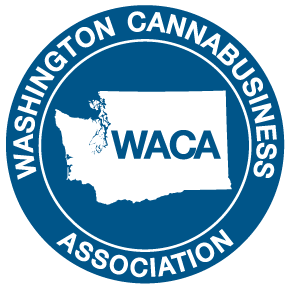|
WASHINGTON CANNABUSINESS ASSOCIATION 2019 REGULATORY AGENDA Since the passage of Initiative 502, the Liquor and Cannabis Board has done an outstanding job in crafting rules for the developing cannabis industry. WACA supports maintaining the integrity of the current licensing process. Comprehensive standards for licensing are important to ensure that reputable businesses earn and maintain the rigor of the law and the regulated system. As with all complex regulatory structures, changes are needed to perfect the existing rules. To operate successfully while also adhering to the law, rules must be implemented and enforced clearly and consistently. Accordingly, WACA proposes the following adjustments to the regulatory structure. These changes are meant as constructive suggestions to strengthen the rules for 502 licensees with the goal of supporting a safe, quality-controlled and fully-regulated marketplace. You may also download a .PDF version of our regulatory agenda by clicking this link. Address ongoing traceability system issues and make organizational changes within the WSLCB to facilitate these efforts Challenges with the implementation of the new traceability system have caused substantial issues for licensees, often so severe that daily business functions are interrupted and the businesses suffer. While WACA recognizes the efforts the WSLCB has made to mitigate effects of the recent transition and work with third-party integrators to correct technical issues, there are still a number of problematic system shortcomings that need to be addressed including:
Additionally, WACA proposes the WSLCB make specific and immediate efforts to:
Clarify rules and increase flexibility around transportation and delivery The current rules regarding transportation and delivery of marijuana products from producer/processors to retailers are highly restrictive and often result in costly and wasteful extra trips. To mitigate the effects of unnecessary miles travelled, specific changes should be made to the current rules to allow:
Create a mitigation system for minor violations Currently, licensees that receive four violations of any one type, regardless of the severity, face the threat of losing their license. While this penalty is appropriate for severe violations - those that endanger children or the general public - it is not appropriate for minor violations. There should be a process for mitigation and correction for minor violations that allows the licensee to correct innocent mistakes within a set period. If the licensee fails to rectify the issues, the more severe penalty should apply.
Allow multiple simple license changes in one request/application The current process for business owners to make simple changes to their license, specifically pursuant to location and ownership, requires submitting a separate application/request for each change, which may take weeks or months to get approved. During this extended approval-waiting period, businesses often face timeline issues such as losing holds on facilities. Allowing multiple small changes—such as change of floor plan, change of location, additional minority ownership, change of operating agreement or removal of members—in one application/request, will conserve administrative resources, thereby expediting approval timelines and improving the efficiency of daily business. |
